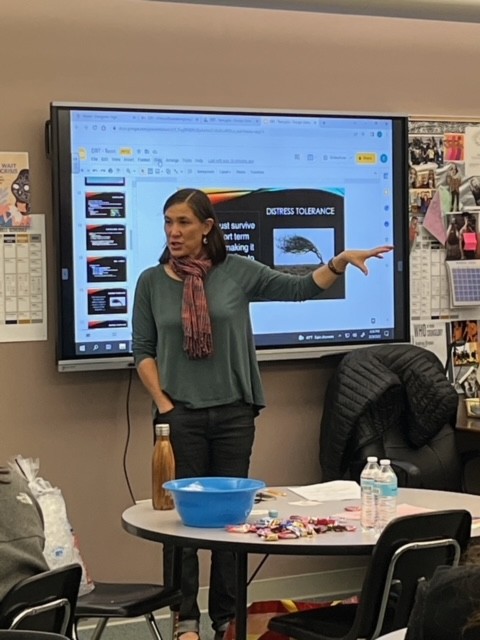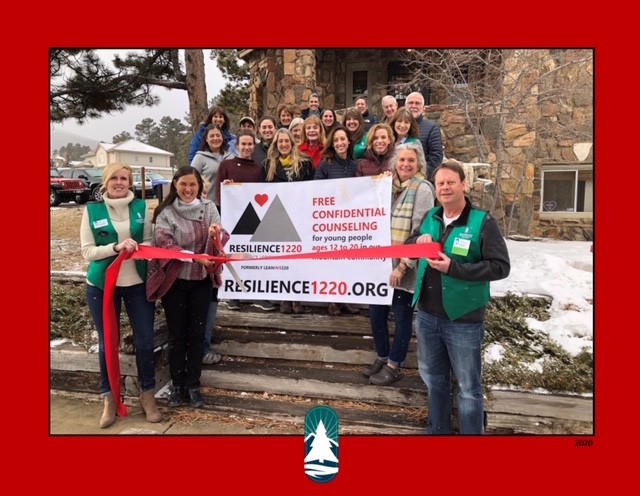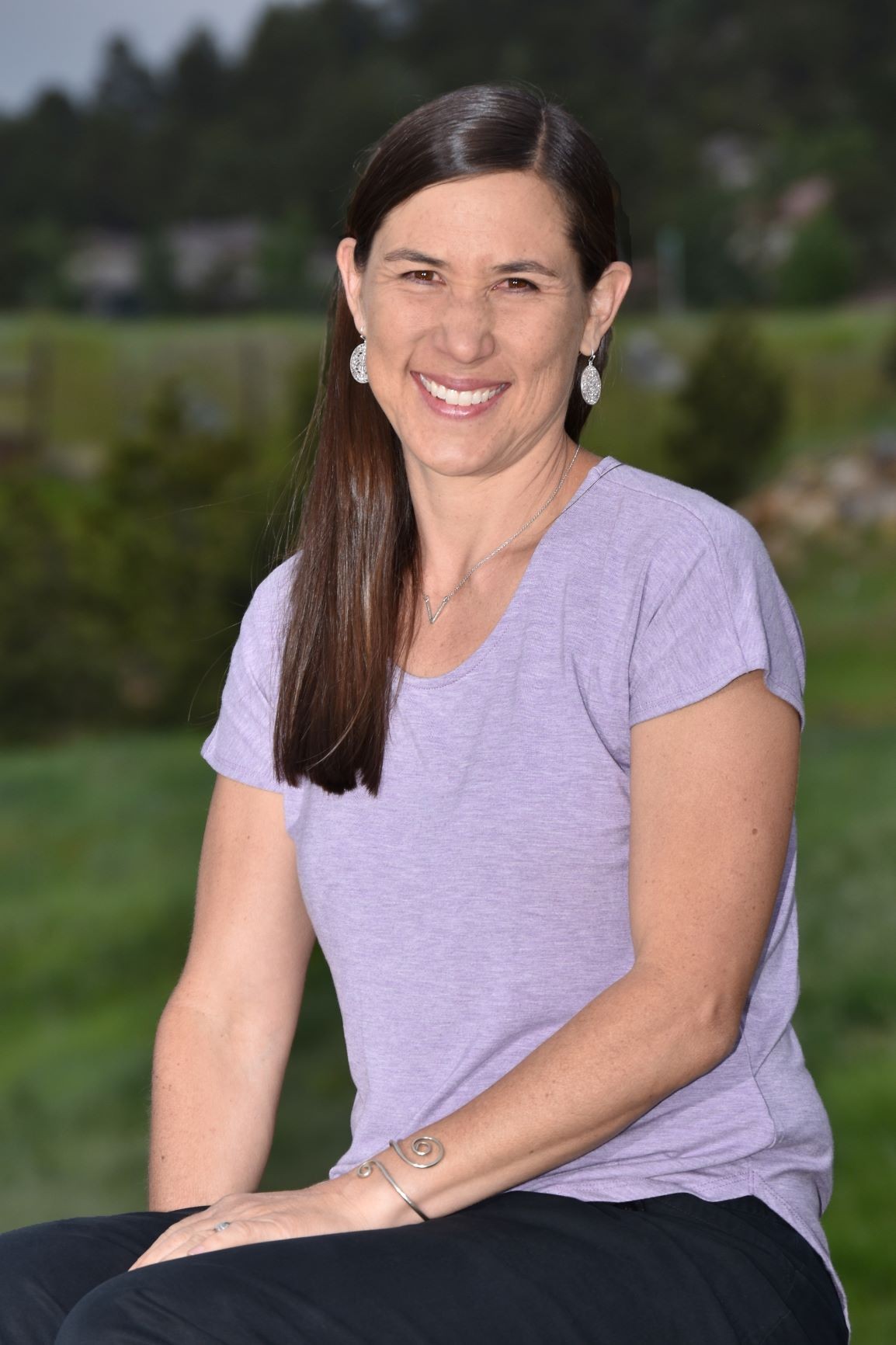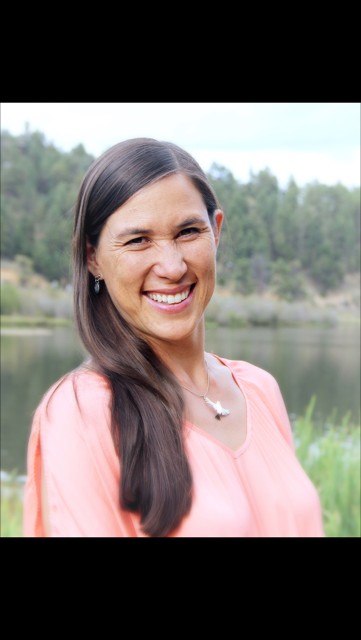We’re excited to introduce you to the always interesting and insightful Heather Aberg. We hope you’ll enjoy our conversation with Heather below.
Heather, looking forward to hearing all of your stories today. Looking back on your career, have you ever worked with a great leader or boss? We’d love to hear about the experience and what you think made them such a great leader.
I have had SO MANY great mentors!
The top two:
1. Sallie Wandling, a fellow social worker, was my supervisor when I was in graduate school and then became my supervisor at Mount Evans Home Care and Hospice for 18 years. Sallie taught me characteristics and lessons that I am realizing as I have, for the first time, found myself in a leadership role.
Laughter and the use of humor, connects people. Humor and finding joy, is a necessary coping strategy for working in helping professions. Also, showing appreciation goes a long way! Sallie amazed me time and time again, with how she could look at an issue with layers of thought and make a sound decision. I try to do this now as I navigate multiple large and small scale decisions each day.
My second inspiration at many levels is my father. As a parent of three, executive director of a new nonprofit and as someone with no experience in either of these areas, he has taught me the art of listening, asking questions, being humble and breathing. Ted Ning, my father, demonstrates compassion and connection in all of his endeavors- as a father, grandfather, surgeon, teacher, humanitarian, beekeeper, gardener, athlete and human. He has shown how one person can connect with others and show kindness.


As always, we appreciate you sharing your insights and we’ve got a few more questions for you, but before we get to all of that can you take a minute to introduce yourself and give our readers some of your background and context?
When I boy took his life by jumping from a bridge in Evergreen, I felt sick in every part of my body and soul. As a parent and mental health professional, this death struck my as horrifying and a sign that our mountain-area youth needed help.
Resilience1220.org provides 10 free counseling sessions to youth who live in the mountains west of Denver. Our intake process is simple and fast and our 30+ therapists will travel to the area of the client. Without the barriers of money, travel and confusion, we have been able to serve over 700 youth.
The power of therapy groups is another way to attend to the social and mental health needs of our youth. We offer various groups, including LGBTQIA+, Yoga therapy, Art therapy, a Grief Group, DBT (a type of skills-based therapy group), an Equine group and more. We also help adults who care for youth by offering 3 free therapy sessions to parents, caregivers and many teachers.
We are working to reduce stigma around mental health by offering films and lectures as well. We are planning an LGBTQIA+ Panel in Clear Creek for April. Last week we showed a film called Angst to teach people about anxiety and mental health. These free programs have reached approximately 3,000 people.
Other than training/knowledge, what do you think is most helpful for succeeding in your field?
Self-talk has and is incredibly helpful to my success! I’m not saying that I’m always successful at using it, but cheering for myself has gotten me through some tough times, hard decisions and tired times.
Equally important is the group I surround myself with. I am fortunate to have wise, enthusiastic friends of all ages and professions who hold me up at times. I can be vulnerable and I don’t feel judged. I certainly need them and know when to ask for help from each of them.

Can you share a story from your journey that illustrates your resilience?
I think about when I retired from being a competitive athlete and transitioning back into the real world. I returned to college much older than my peers, worked and left my identity as an athlete. The film called “The Weight of Gold” describes this process and the mental health issues that arise when an athlete has worked so very hard to achieve a goal and how retiring creates depression. Luckily, I have good friends and supportive husband that was going through the same process with me.
My resilience was shown in my grit. I knew that my degree in psychology would lead me to the next place. Therapy helped me release some of the bitterness I felt when I left my sport and I rebuilt my life.
We each have our coping strategies- some great, and some not-so-much. If we can talk about mental health to connect, learn and grow, we will all benefit and be stronger!
Contact Info:
- Website: resilience1220.org
- Instagram: resilience1220.org
- Facebook: resilience1220.org


